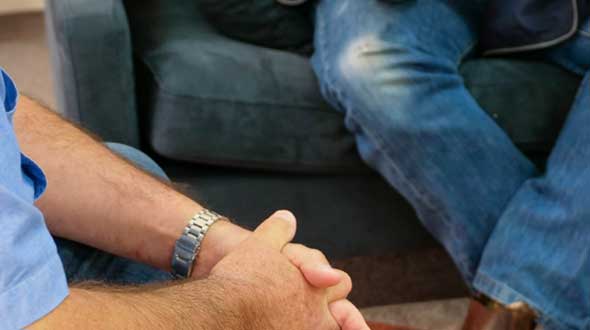Article supplied by RFDS: One of the most widespread challenges of the pandemic has been how to deal with lockdowns, changes to employment and financial circumstances, and not being able to see friends and family.
One of the most widespread challenges of the pandemic has been how to deal with lockdowns, changes to employment and financial circumstances, and not being able to see friends and family.
This has put a bigger focus on mental health than ever before. The sudden and abrupt change to the way of life has seen more people needing help and reaching out for it.
The RFDSSE Mental Health, Alcohol and Other Drugs (MHAoD) team have been working in our communities to ensure continued access to help is available. As well as continuing to offer services such as virtual consultations and telehealth, the team has looked at other ways to support communities, families and individuals.

This has included the COVID-19 In-Reach Older Persons Program, funded by Western Primary Health Network, which provides practical support to Older Persons across the whole of Western and Far Western LHD.
RFDSSE Mental Health Manager Vanessa Latham and members of her team located at Broken Hill participated in the COVID testing clinic and used the opportunity to check on the mental health of the community, as well as registering people for testing.

“It was lovely to be able to introduce myself and explain the sequence of what was going to happen, and say ‘my background is mental health nursing, so, how is your mental health going at this time?’,” Ms Latham said. “During high demand times when cars needed to queue, it was a great opportunity to have a little chat.”
Like so many divisions of the RFDSSE, the MHAoD team has looked for ways to assist with the unprecedented workload of running vaccination clinics across the service’s territory. Ken Pascoe is an AoD Clinician with the Flying Doctor and in addition to his regular duties, he has been travelling across NSW to conduct vaccinations, and has been tying in his mental health training.
“We are finding a lot of children and even adults have a fear of needles so being able to calm them down, get them to conduct some breathing exercises and relax makes the process easier for them. I am finding that when we go back to administer second doses, people look for me because their first dose went so well,” Mr Pascoe said.
Thanks to your support, we are able to keep these vital services going and ensure the mental health needs of people in regional and remote Australia are well looked after.



